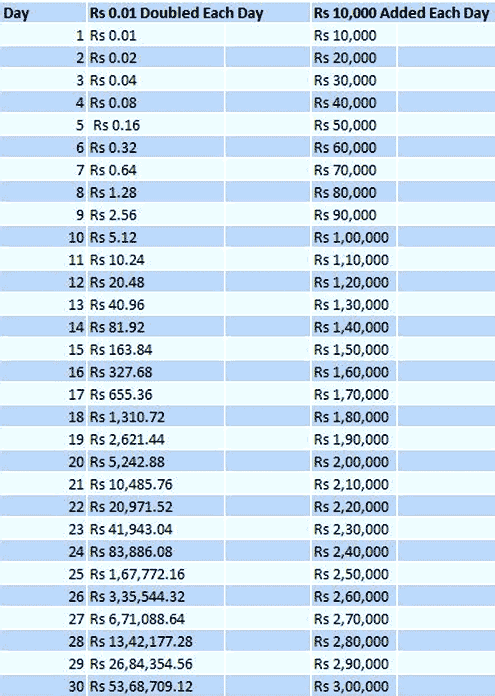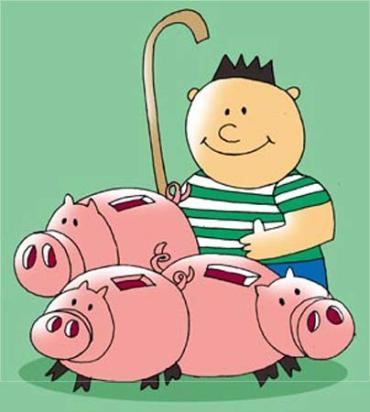
Here's what made the founder of the world's largest mutual fund help his investors create wealth.
The founder of the Vanguard Group, John Bogle served as Chairman and Chief Executive Officer until 1996 and Senior Chairman until 2000. An ardent defender of the common investor, his book Common Sense on Mutual Funds: New Imperatives for the Intelligent Investor was a bestseller and is regarded as a classic.
John Bogle turned 85 on May 8 this year. Here is some timeless advice from him over the years.
Also Read: 7 investment lessons from Rakesh Jhunjhunwala
Please click NEXT to continue reading

I think basically you should not be doing anything differently. I mean investment is a pretty simple thing.
You've got to say, "I know I'm not smart enough to get out at the high. I know I'm not smart enough to get back into the low, so I'm just going to stay the course," as we would say at Vanguard, and hang on through all that.
Importantly, if I'm trying to accumulate money for retirement, or to buy a home or to educate my children, what you want to do is keep investing and say, "How could I keep investing the day if the market goes down 600 points?" That's the greatest time in the world to invest, certainly better than doing it the day before it goes down 600 points.
I think people have lost sight of the fact that a sharp market decline is--of course it's bad for sellers, but it's good for buyers. Since the stock market is the interaction of sellers and buyers, it's always good for somebody.
Please click NEXT to continue reading

...And not get distracted by market noise
The focus, that investors have, is always on what's done well. Our neighbor is doing better. He owned gold or he owned growth stocks, or value stocks did nothing. And the moment the temptation gets to its highest level, that's the moment when people start to think I've got to change now, and that's the worst time to do it. So I'm still a "stay the course" person. Own the stock market, own the bond market, as modified to meet your needs, and don't peek. One of the greatest rules for investing ever made…
The stock market is a giant distraction to the business of investing. Stocks don't produce anything. They are means of owning companies who produce something. And so if people would just get their arms around investing and stop speculating, they would definitely accumulate much, much greater.
Please click NEXT to continue reading

CNBC requested Bogle to contribute his thoughts about compounding, a subject he has returned to many times over the years in his books and other writing. Here is excerpt from his contribution.
For as long as I can remember, compound interest has been at the center of my own investment thinking. The opening words in the very first chapter of my very first book were: "The Magic of Compounding. 'The greatest mathematical discovery of all time' is how Albert Einstein described compound interest ... the value of $1,000 invested in stocks in 1872 would have grown to $27,710,000 in 1992 [when the book was published and the historical rate of return on stocks was 8.8 per cent] ... the magic of compounding writ large."
Since a comfortable retirement is the principal objective of nearly all U.S. families, in my book, "The Battle for the Soul of Capitalism," I use a 65-year time horizon, one that assumes a 45-year working career (to age 65) and a further 20 years of life (to age 85) based on today's actuarial tables: "$1,000 invested at the outset of the period, earning an assumed annual return of, say, 8 per cent would have a final value of $148,780—the magic of compounding returns."
The principles of sensible savings and investing are time-tested, perhaps even eternal. The way to wealth, it turns out, is to avoid the high-cost, high-turnover, opportunistic marketing modalities that characterize today's financial service system and rely on the magic of compounding returns. While the interests of the business are served by the aphorism "Don't just stand there. Do something!" the interests of investors are served by an approach that is its diametrical opposite: "Don't do something. Just stand there!"
Please click NEXT to continue reading

Rely on simplicity; own American or global business in broadly diversified, low-cost funds.
There is a rule of thumb I add to that. You should start out heavily invested in equities. Hold some bond index funds as well as stock index funds. By the time you get closer to retirement or into your retirement, you should have a significant position in bond index funds as well as stock index funds. As we get older, we have less time to recoup. We have more money to protect and our nervousness increases with age. We get a little bit worried about that nest egg when it's large and we have little time to recoup it, so we pay too much attention to the fluctuations in the market, which in the long run mean nothing.